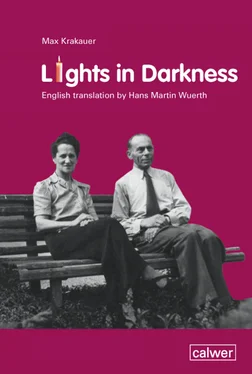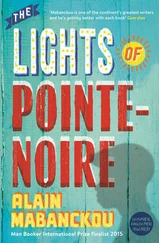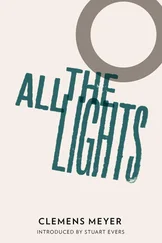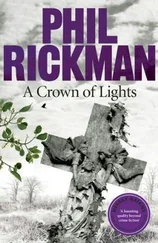A cold March wind swept through the street as we paced back and forth, visibly shaking. At all times we tried not to appear apprehensive to avoid being asked for our identity papers. For the papers we possessed had been stamped with an ominous “J,” and were now tucked away. One ID was at Ackermann’s place, the other at his sister’s. After what seemed like an endless wait, we saw our friend approach us. Anxiously, we tried to read the mission’s outcome from the expression on his face. He reported that he initially told Dr. von Rabenau that he had not come on his own behalf, as he did not have the courage to say that his visit was on behalf of Jews. At this point Dr. von Rabenau raised the crucial question himself, making our friend breathe a sigh of relief. Someone on the other side of the table had helped him get to the heart of the issue. Without delay, Dr. von Rabenau promised to look into this matter himself and asked our friend to return that same afternoon. Waiting for hours seemed like an eternity. Ackermann came back from his second meeting but without the expected results. No accommodation had been found.
Instead, we received three addresses, which we were asked to check out in confidence. The first one was that of a woman who lived near the subway station of Breitenbachplatz. She was not home, but I heard later that she was secretly hiding Jews at her place, and in all likelihood she would have been unable to take us in. Besides, the house and her apartment had been damaged considerably. The second address was that of pastor Burckhardt at the Church of Heilbronnen, but he was out of town. The tiny hope that had sustained us before, now melted away.
The third name was that of Dr. Jannasch, a pastor who lived in Berlin-Dahlem, but whose office was located at the Mission Gossner in Berlin-Schöneberg. We met him there, and with some hesitation and a lack of self-confidence, we began to explain the purpose of our visit. His reaction was astonishing. Acting as if this were a totally routine matter, he promised to help us. He had no second thoughts about it and showed much kindness. For the night, however, he was only able to offer the space in his office or the rooms of his associate pastor who lived in the same house. That pastor had been released from a concentration camp only recently, where he had been imprisoned for his pro-Jewish activities. Nevertheless, he was immediately ready to put us up. We had to decline, of course, because of this man’s already precarious situation. So we decided to ask Ms. Balzer and the other family once more, and for this one night only because they had helped us before.
Dr. Jannasch asked us to return the next day, which we did. He tried everything imaginable but was unable to locate a place for us. Due to the bombing raids that had denied us shelter before, most other places that otherwise would have been available for sheltering Jews, had now been destroyed or damaged, or they were overcrowded with other victims.
Dr. Jannasch informed us that several thousand Jews were currently being hidden, nourished, and cared for in Berlin by the BK (Bekennende Kirche = Confessing Church). He was aware of our despair and offered us beds at his home despite the fact that he was under surveillance. Also, he had been sentenced to a jail term he still hadn’t served. We accepted his offer, but not without strong reservations. If only we had known of some way out, we would not have increased the danger he faced already. To play it safe, we approached his house in darkness. A nasty rainstorm made it impossible to stay in the streets any longer. We went from one restaurant to the next and were in constant fear of running into a police check and being asked for our identity papers.
Finally it was 10 in the evening. In total darkness – the street lamps were out and all windows were darkened – Dr. Jannasch identified himself and, as quietly as possible, led us into his house. We had just reached the door, when the lights of the hallway were turned on. There, standing in the door of the corridor, was the woman next door who showed a lively interest in knowing who had come to visit Dr. Jannasch at such a late hour. She was known as a friendly woman, but was sympathetic to the National Socialist Party. “Am I glad that you found the way here from the station all by yourself after we had missed each other,” Dr. Jannasch replied with quick presence of mind, having assessed the situation instantly. This was the atmosphere of Berlin at that time. Distrust tore on the very souls of the people, and the fear of others drove them to extreme caution.
Mrs. Jannasch’s reception and hospitality were most cordial and reassuring. For the first time we were able to get a good night’s sleep. On the following day, they disclosed that despite the considerable efforts made by a larger circle of friends, no home in Berlin could be found. We were advised to travel to Pomerania from where a message had been received to the effect that certain contact persons were prepared to care for persecuted Jews.
Pomerania! A few hours away from Berlin by train and seemingly out of reach for people like us. How was anyone expected to get there without personal papers? All trains were routinely checked by the police. Saddened and dejected, we refused the offer because to undertake such a journey certainly held no promise. But Dr. Jannasch replied that God had led us onto this path and that we would now have to trust his guidance. Moreover, the Confessing Church would not abandon us. We were tremendously afraid to undertake such a trip without papers. And yet, if we hoped to reach the goal we had set for ourselves at a time when our spiritual strength was running out, and if we hoped to see our child again, then we had to be prepared to risk the seemingly impossible.
The pastor’s well-meant encouragement was crucial in making our decision easier. Furthermore, he gave us an address where one could obtain forged papers. We interpreted the outcome of this attempt as a bad start and a dark omen: the man in charge had been arrested the day before. One last time we consulted with our friend Ackermann. It seemed as if our new misfortune went beyond the strength of this benevolent and ill man. First he encouraged us to risk the trip; then he proceeded to take an action that for this former civil servant certainly was heroic. He reached for his old and obsolete postal identity card, replaced his picture with mine and drew in the missing part of the postmark. Quietly he shook our hands when we departed.
Some of our belongings were at Ackermann’s place; the others were left with a woman in Berlin-Charlottenburg. Whatever we urgently needed was put in our suitcases. Our friend Ackermann was willing to ship the rest of our belongings as soon as we had arrived in Pomerania. There was no one else with whom we could have shared this information. All of these things Ackermann took care with infinite love, and he made the most demanding errands himself. Because the baggage could not be transported in some other way, he carried our belongings to the station and the post office alone. As for us, we took our suitcases to the Stettin train station, bought tickets to Bad Polzin and had our suitcases sent ahead, not suspecting that this soon would be our lucky break.
We had to spend one last night in Berlin, but even our once reliable friends in Schöneberg refused to put us up for the night. They also appeared emotionally drained. I tried the mechanic of a repair shop who had been recommended by our Schöneberg friends, and this man was willing to help. Sleeping on a make-shift bed on the floor of his workshop, we spent the last hours there until it was time to leave. The decent mechanic and a friend of his who lived in the same house, did everything they could to make this last night as pleasant as possible. They even asked us to drink the milk reserved for the infant of one family, and stuck a few tasty, hard-to-get delicacies into our pockets. At four in the morning, we took the first trolley to the Stettin station, where a large crowd of travellers had assembled by the entrance. Soon we were right in the middle of it, waiting until the gate to the platform was opened. A few moments later we sat in the train.
Читать дальше












